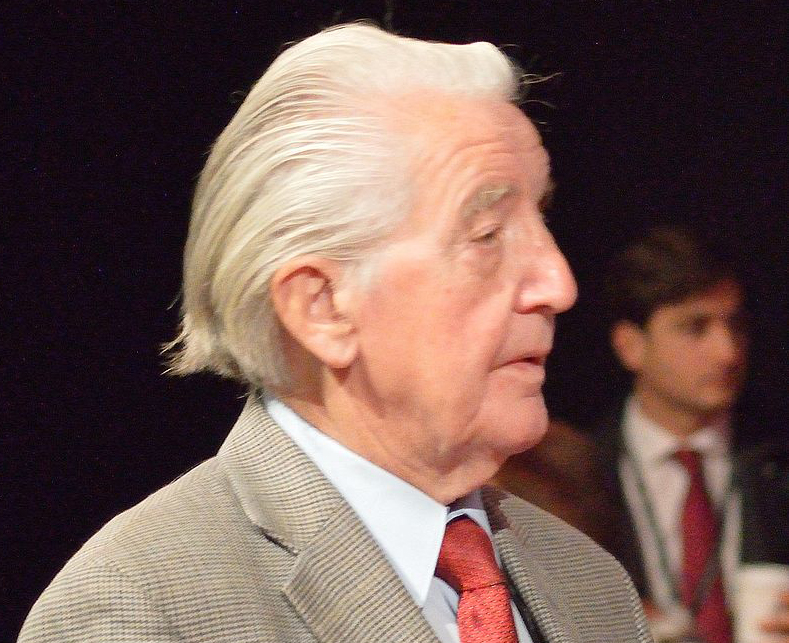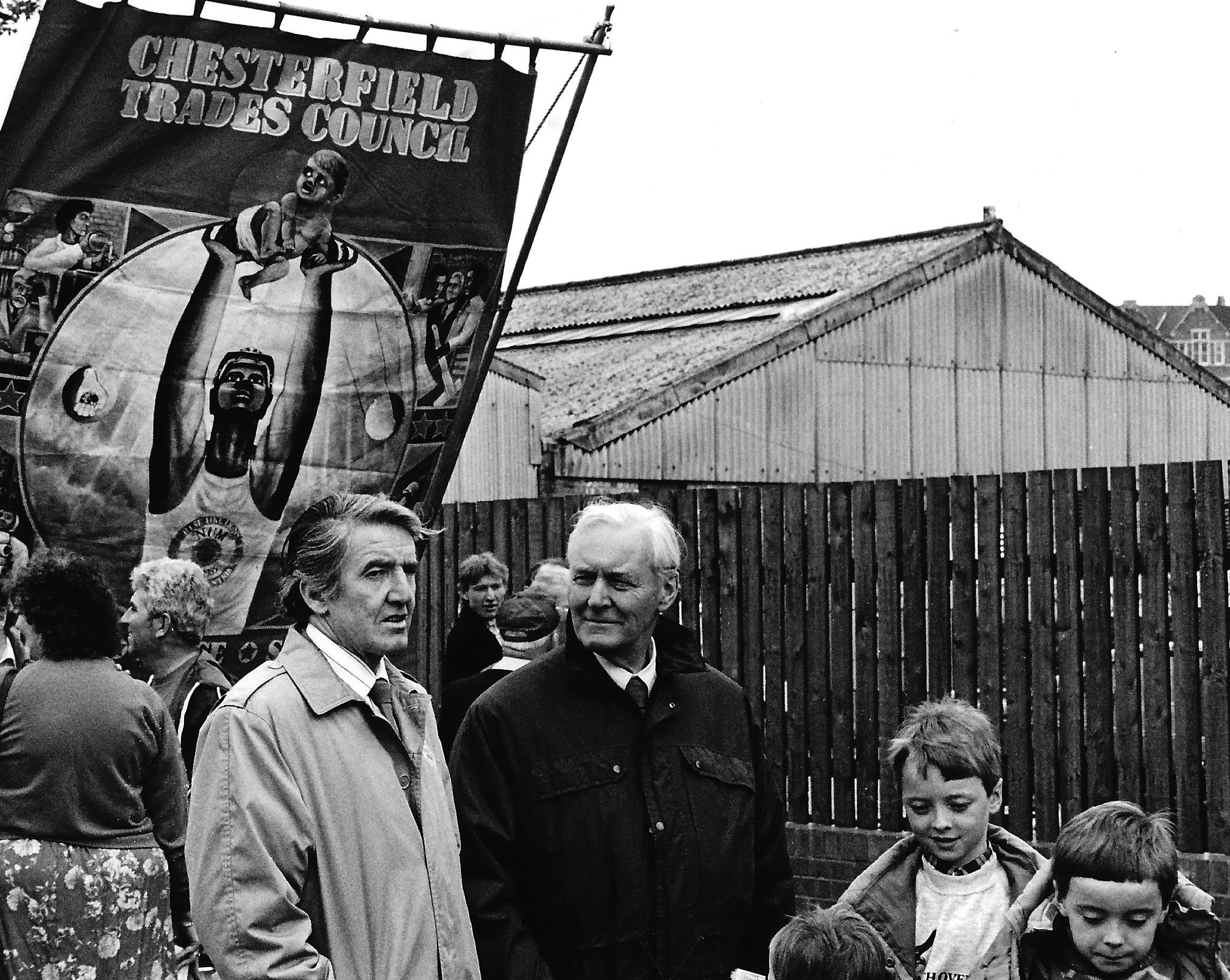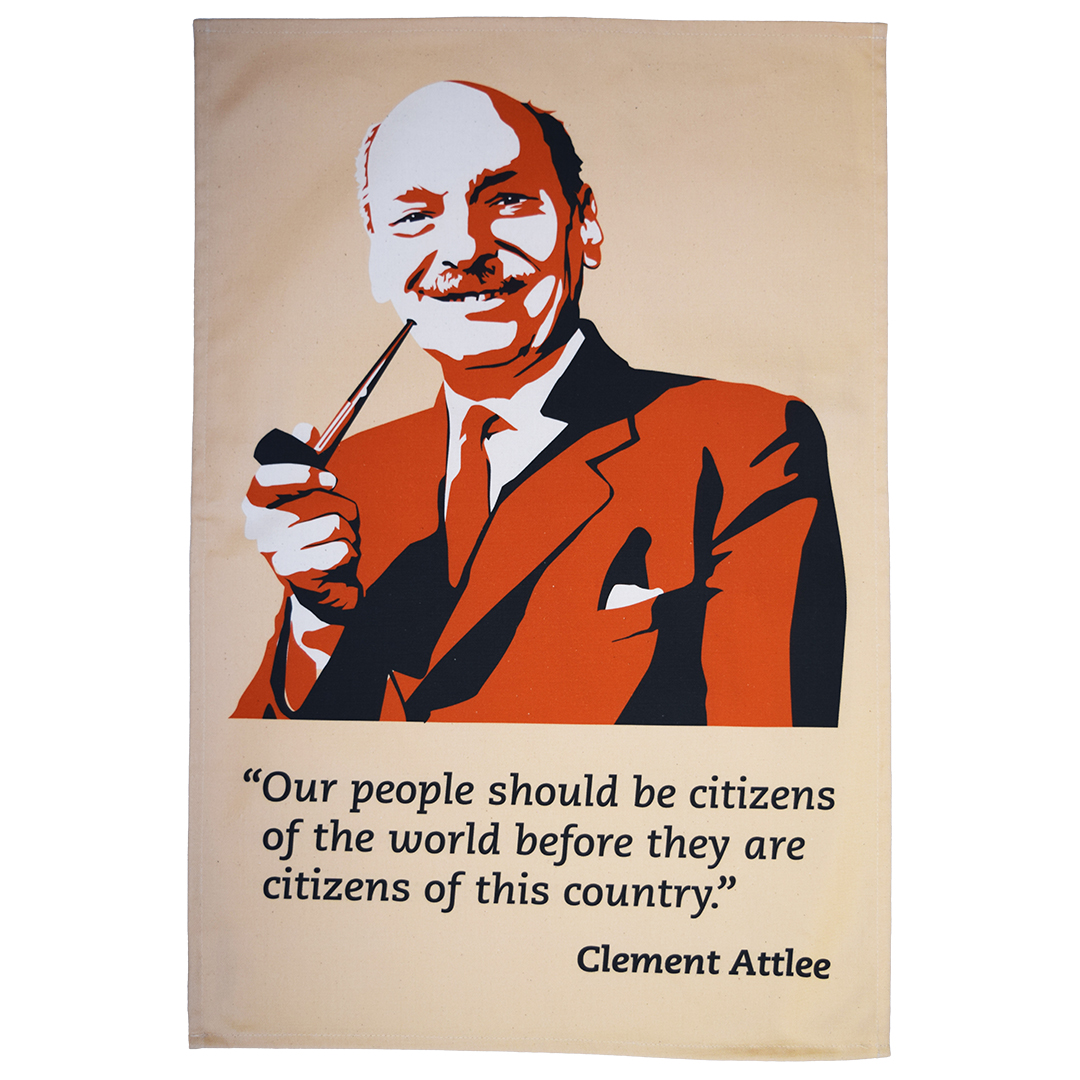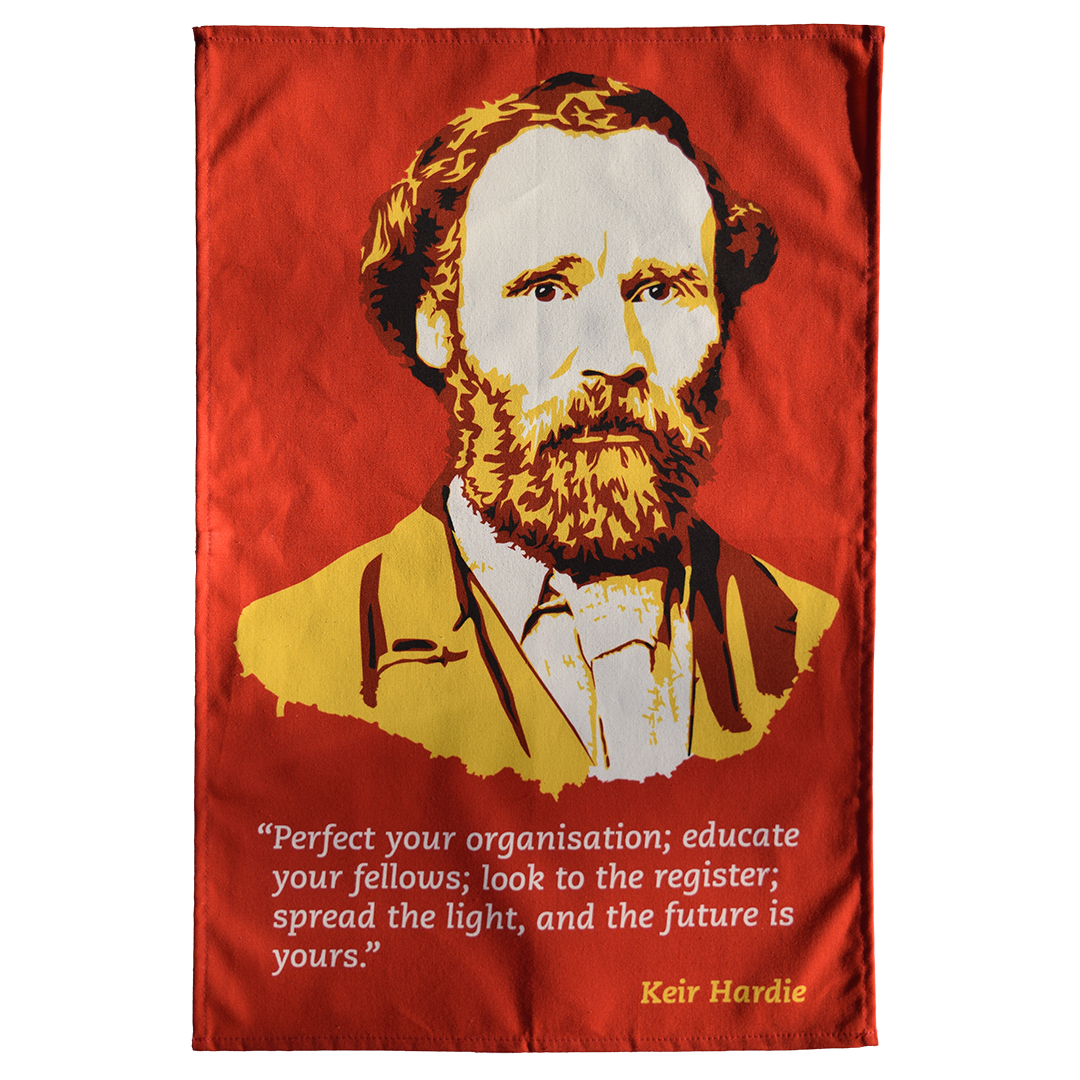We use cookies to make your shopping experience better. By using our website, you're agreeing to the collection of data as described in our Privacy Policy.
Dennis Skinner: The Beast of Bolsover
He's a legendary figure in Labour politics - but who exactly was Dennis Skinner?
When the Labour Party was founded, all of its MPs were workers, and most of them were miners.
By 1970, however, the face of the Labour Party changed dramatically. Take
Clement Attlee for example: he was a lawyer and an army officer before he became the Labour leader.
But some workers remained on the Labour benches, few more formidable than the one and only Beast of Bolsover, Dennis Skinner.

Dennis Skinner at the Labour Party Conference in 2016 in Liverpool. Credit: Rwendland
Not a working class man himself, it was Attlee's volunteering in the East End that exposed him to the country's rife inequality.
Click to view our Clement Attlee tea towel
Turning 90 today, Dennis Skinner was born in Clay Cross, Derbyshire.
Skinner’s mum was a cleaner and his dad was a coalminer, and his family were no strangers to political activism: dad had been blacklisted after taking part in the
General Strike of 1926.
Dennis went down the mines himself in 1949, working at Parkhouse Colliery until it closed in 1962. He then moved on to Glapwell Colliery, near Bolsover.
Charismatic and intelligent, Skinner was elected President of the Derbyshire National Union of Mineworkers (NUM) in 1964.
Skinner had been a Labour Member since the 1950s, but it was the NUM who first put his name forward as a parliamentary candidate – they needed a voice for the miners in the corridors of power, and they knew Skinner was perfect for the job.

Dennis Skinner (left) with another Labour legend, Tony Benn (right), in 1992.
The Tories won a surprise victory in the 1970 General Election, giving Ted Heath the keys to Downing Street.
It was a bad day for Labour nationally, but things went pretty well in Bolsover: Skinner was elected Labour MP with a whopping 77.5% of the vote.
He would remain in the post for half a century, making him the longest continuously-serving Labour MP.
As a working-class parliamentarian, Skinner took the path of
Keir Hardie rather than Ramsay MacDonald, remaining steadfastly loyal to the people he represented, regardless of whether his colleagues did the same.
Dennis Skinner’s boss was never Harold Wilson or Tony Blair – it was the working classes in Bolsover and across the country.
Like Skinner, Keir Hardie was a coalminer before he became a politician in Westminster.
Click here to view our Keir Hardie tea towel
And so, during his many years in Westminster, Skinner developed a pretty stellar political record.
Ignoring the Labour whip when he needed to, he voted consistently against aggressive wars abroad and cuts at home. He backed LGBTQ rights, reproductive rights, and the wealth and security of Britain’s multiracial working class.
All of this he did with a wonderful disregard for the pomp and decorum of parliament – a culture sculpted by long centuries of plutocratic prejudice and snobbery.
Many lesser Labour MPs have fallen hook, line, and sinker for the expensive splendour of Westminster. But never Dennis Skinner.
Upon the death of Anthony Eden in 1977, Skinner remembered how MPs
“…were making speeches about the wonder of Anthony Eden, so I got up and talked about miners and people seriously injured and dead in the pits and the £200 given to the widow. There was booing and then all the Tories left and the papers had a go.”
It was this no-nonsense (and occasionally aggressive) approach that won Skinner his nickname - the Beast of Bolsover.
A staunch republican, he also became known for his witty heckling during the annual Queen’s Speech ceremony – at one point telling the Queen to pay her income tax and read the Guardian!
Others may have embraced Parliament as a glamorous forum for the ruling class to congratulate itself and defend its own interests.
For Dennis Skinner, on the other hand, Parliament was a grim but unavoidable means by which the exploited working class could make its voice heard.
Though he lost his seat in the 2019 General Election, Skinner represents the very best tradition in the UK Labour Party, going back through
Nye Bevan and Ellen Wilkinson, all the way to Keir Hardie.
Socialist politics, of, by, and for the people.





